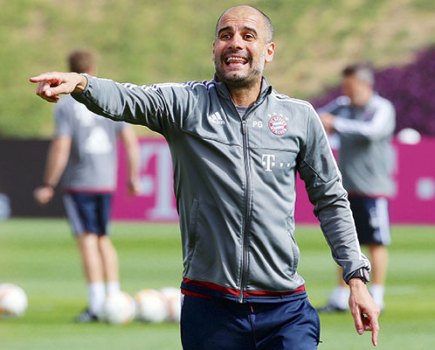 Is it really 30 summers ago that I first saw a young Michael Laudrup playing for Brondby, a dazzling teenager clearly destined for greatness? He had wonderful technique and a magician’s ability to sway his hips and glide past floundering opponents.
Is it really 30 summers ago that I first saw a young Michael Laudrup playing for Brondby, a dazzling teenager clearly destined for greatness? He had wonderful technique and a magician’s ability to sway his hips and glide past floundering opponents.
The kid was already on the wish-list of major clubs. Feyenoord had tried and failed to take him on loan after his father Finn, a star Danish player in his time, advised against it.
It was one of those rare moments when you know you’ve seen a special talent and the start of a major football career. I wrote about him in these pages and so joined the regular cast of World Soccer. Laudrup has featured large ever since.
A year later he almost signed for Liverpool; a three-year contract had been agreed. At the last moment Liverpool wanted it to be four years and Laudrup moved to Juventus instead.
He was the diamond of the “Danish Dynamite” team of the 1980s and the only modern star to play for Barcelona and Real Madrid and remain revered at both. When Laudrup was at Real he once inspired them to a 5-0 Clasico victory against his old club Barca, whose coach Johan Cruyff said: “When Michael plays like a dream, a magic illusion, determined to show his new team extreme abilities, no one in the world comes anywhere near him.”
Thirty years on, Laudrup has finally made it to English football as the new manager of Premier League side Swansea City. He was chosen quite specifically because of his soccer philosophy: that the game is played stylishly, the ball passed out from the back, and with an insistence on elegance and grace.
He was chosen to continue the fine work of Brendan Rodgers, who had been nabbed by Liverpool, and to become, in consequence, another leader of the quiet revolution that is coursing through English football: the change from hurly-burly, long-ball, risk-averse soccer to the game played the Barcelona way. This is second nature to Laudrup. It was how he learned the game as a boy in Denmark, and he is, like his old friend Pep Guardiola, a natural disciple of Cruyff.
The arrival of Laudrup in the English game was almost by stealth, joining Swansea when the country was consumed by the London 2012 Olympics. He made a swift impression on the opening day of the Premier League season as his team won 5-0 away. It was another tick for the stylists.
It is happening throughout the English game, not just in obvious places like Arsene Wenger’s Arsenal and Roberto Mancini’s Manchester City, where financial might underpins football principles.
Look at Blackpool under Ian Holloway, playing beautifully through promotion, relegation and play-offs. Look at Brighton with Gus Poyet. Look at Swindon, flying up from the fourth tier with Paolo Di Canio at the helm. Look, perhaps most instructively of all, at stricken Portsmouth, emboldened in dire straits by manager Michael Appleton.
“It makes me nervous,” said a pal of mine who supports them. “The centre-halves go wide, the midfielder drops deep, and we start short passing our way up the field.” These nerves are with a chap who much prefers proper football but finds it hard to escape from the long-entrenched psyche of English football that you play safe and boot it long rather than take a risk.
Centre-backs wide, midfielders dropping to start the play – that’s just how Denmark’s national side perform, of which Laudrup was assistant boss at the 2002 World Cup. It’s what Barcelona do. It’s what Southampton, promoted to the Premier League under another quiet manager, Nigel Adkins, are trying to do as well.
It is utterly fascinating and exhilarating, and some of us believe it is long overdue.
Michael Laudrup seems to me the most welcome addition to English football. He would surely have been magical for Liverpool had he joined them three decades ago. He has surely arrived at the right time now.



